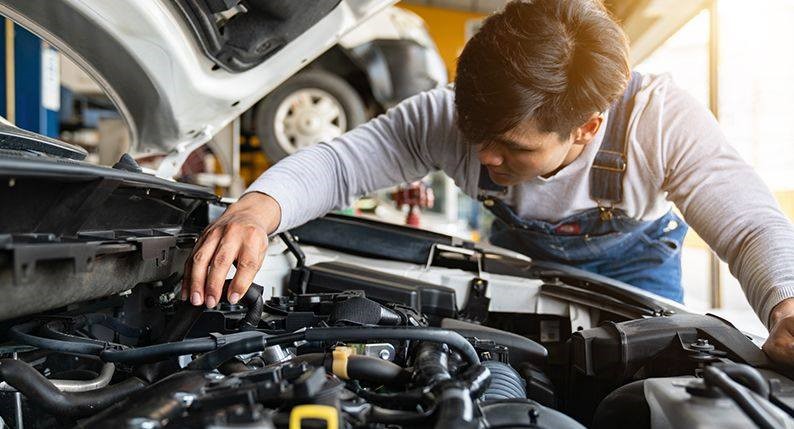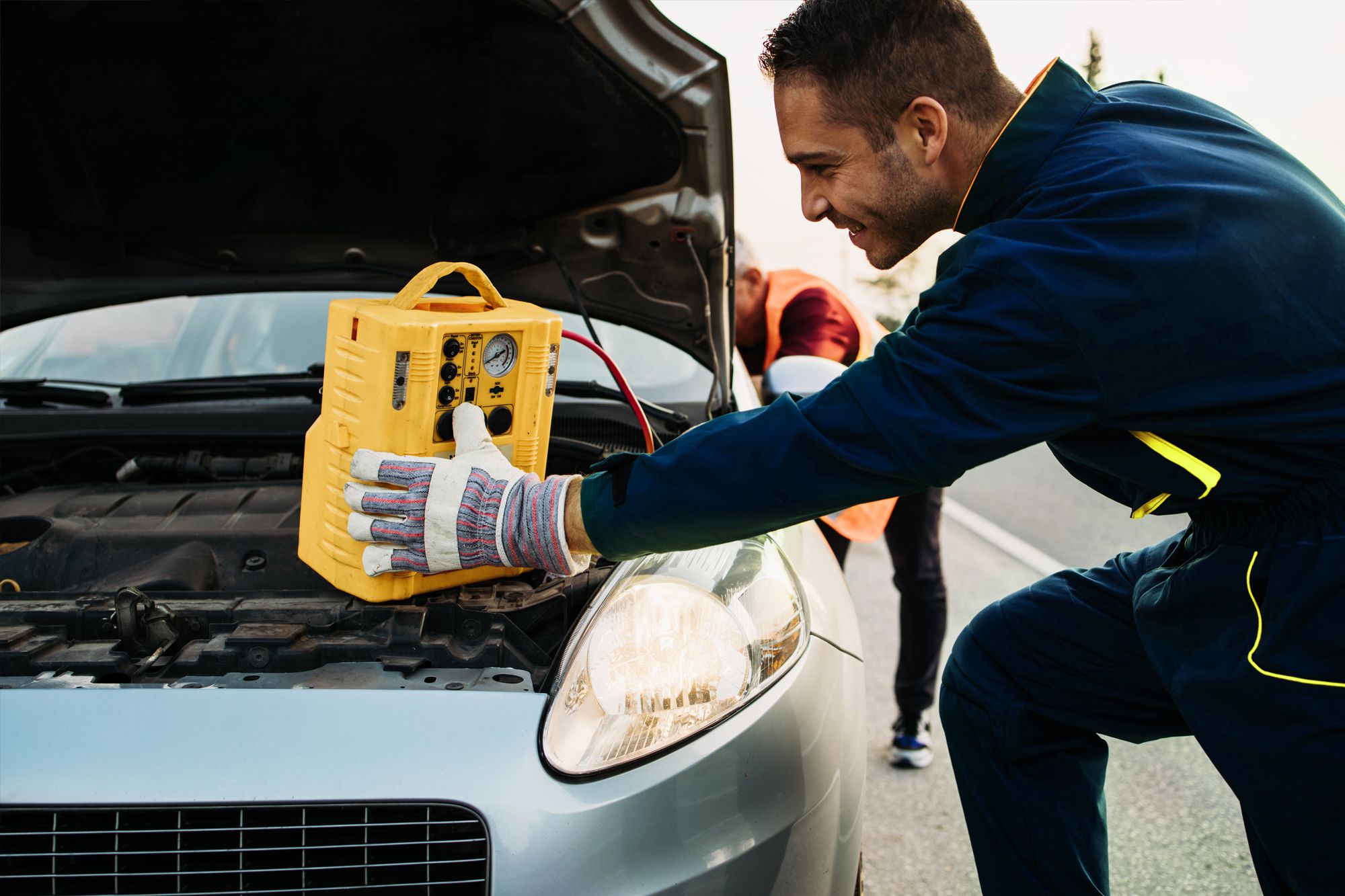All Categories
Featured
When your automobile begins to overheat, it can be a demanding and frightening situation. Recognizing how to react in these moments and taking steps to stop future getting too hot can assist shield your lorry and stay clear of expensive repair work. If your cars and truck overheats and exactly how to prevent it from taking place again., right here's what to do.
What to Do If Your Cars and truck Gets too hot. Pull Over and Transform Off the Engine The first point you should do if your auto starts to overheat is to draw over to a secure area, such as a car park or the shoulder of the roadway. Shut off the engine immediately to stop further damage. Running an overheated engine can trigger irreparable damages to the inner elements, including the radiator and cyndrical tube heads.
Enable the Engine to Cool After shutting off the engine, provide it time to cool off. Opening up the hood can assist release warm, but be cautious as the engine and surrounding areas may still be very warm. Wait at least 15-20 mins prior to attempting any additional actions.
Check the Coolant Degree Once the engine has cooled down, inspect the coolant level. You can include coolant or water to the radiator or coolant storage tank if it is reduced. However, never ever open the radiator cap while the engine is warm, as this can trigger hot coolant to spray and melt you. Always wait until the engine is trendy prior to opening up the cap.
Evaluate for Leakages or Damaged Pipes While you are evaluating the coolant level, check for any noticeable leakages or harmed pipes under the hood. Split or broken pipes can cause coolant to leakage out, bring about a getting too hot engine. If you find any type of problems, you might require to require roadside support or a tow to obtain the auto to a technician.
Require Help If you can't determine the root cause of the getting too hot or the problem lingers after rounding off the coolant, it's finest to require roadside assistance. Driving with an overheated engine can trigger severe damage to your vehicle and leave you stranded.
![]()
Just How to stop Your Automobile from Overheating. Check Coolant Levels Regularly Among the major sources of overheating is reduced coolant degrees. If required, make it a routine to check your coolant levels frequently and top them off. Describe your vehicle's guidebook for the suggested coolant blend and maintenance intervals.
Check Your Radiator Your radiator plays a vital role in maintaining the engine cool. Make certain there are no obstructions or debris blocking air flow via the radiator. If your radiator is blocked or harmed, it might not operate appropriately, leading to getting too hot.
Maintain Your Cooling System The cooling system must be purged and refilled regularly. With time, coolant can come to be contaminated or lose its effectiveness. Comply with the supplier's suggestions for purging the system, typically every 30,000 to 50,000 miles.
Display the Thermostat and Water Pump The thermostat controls the temperature of the engine, while the water pump distributes coolant via the engine. If either of these parts stops working, it can trigger the engine to get too hot. Have your technician inspect the thermostat and water pump during regular maintenance.
Prevent Straining the Lorry Overloading your vehicle, especially on lengthy trips or hot days, can strain the cooling and the engine system. Be mindful of your lorry's weight limits and try to avoid bring hefty lots, especially when driving in severe temperature levels.
Drive with Treatment Aggressive driving, such as speeding or rapid velocity, can increase engine stress and warmth manufacturing. Reduce, specifically on hot days or when driving up steep slopes, to decrease the threat of overheating.
![]()
Conclusion. Recognizing what to do if your vehicle gets too hot can protect against additional damage to your engine and aid you handle the scenario safely. By routinely examining your coolant levels, evaluating the radiator and tubes, and maintaining the air conditioning system, you can reduce the danger of overheating. With positive care and appropriate maintenance, your automobile will remain in great problem, ensuring you stay secure and avoid costly repair work later on.
What to Do If Your Cars and truck Gets too hot. Pull Over and Transform Off the Engine The first point you should do if your auto starts to overheat is to draw over to a secure area, such as a car park or the shoulder of the roadway. Shut off the engine immediately to stop further damage. Running an overheated engine can trigger irreparable damages to the inner elements, including the radiator and cyndrical tube heads.
Enable the Engine to Cool After shutting off the engine, provide it time to cool off. Opening up the hood can assist release warm, but be cautious as the engine and surrounding areas may still be very warm. Wait at least 15-20 mins prior to attempting any additional actions.
Check the Coolant Degree Once the engine has cooled down, inspect the coolant level. You can include coolant or water to the radiator or coolant storage tank if it is reduced. However, never ever open the radiator cap while the engine is warm, as this can trigger hot coolant to spray and melt you. Always wait until the engine is trendy prior to opening up the cap.
Evaluate for Leakages or Damaged Pipes While you are evaluating the coolant level, check for any noticeable leakages or harmed pipes under the hood. Split or broken pipes can cause coolant to leakage out, bring about a getting too hot engine. If you find any type of problems, you might require to require roadside support or a tow to obtain the auto to a technician.
Require Help If you can't determine the root cause of the getting too hot or the problem lingers after rounding off the coolant, it's finest to require roadside assistance. Driving with an overheated engine can trigger severe damage to your vehicle and leave you stranded.

Just How to stop Your Automobile from Overheating. Check Coolant Levels Regularly Among the major sources of overheating is reduced coolant degrees. If required, make it a routine to check your coolant levels frequently and top them off. Describe your vehicle's guidebook for the suggested coolant blend and maintenance intervals.
Check Your Radiator Your radiator plays a vital role in maintaining the engine cool. Make certain there are no obstructions or debris blocking air flow via the radiator. If your radiator is blocked or harmed, it might not operate appropriately, leading to getting too hot.
Maintain Your Cooling System The cooling system must be purged and refilled regularly. With time, coolant can come to be contaminated or lose its effectiveness. Comply with the supplier's suggestions for purging the system, typically every 30,000 to 50,000 miles.
Display the Thermostat and Water Pump The thermostat controls the temperature of the engine, while the water pump distributes coolant via the engine. If either of these parts stops working, it can trigger the engine to get too hot. Have your technician inspect the thermostat and water pump during regular maintenance.
Prevent Straining the Lorry Overloading your vehicle, especially on lengthy trips or hot days, can strain the cooling and the engine system. Be mindful of your lorry's weight limits and try to avoid bring hefty lots, especially when driving in severe temperature levels.
Drive with Treatment Aggressive driving, such as speeding or rapid velocity, can increase engine stress and warmth manufacturing. Reduce, specifically on hot days or when driving up steep slopes, to decrease the threat of overheating.

Conclusion. Recognizing what to do if your vehicle gets too hot can protect against additional damage to your engine and aid you handle the scenario safely. By routinely examining your coolant levels, evaluating the radiator and tubes, and maintaining the air conditioning system, you can reduce the danger of overheating. With positive care and appropriate maintenance, your automobile will remain in great problem, ensuring you stay secure and avoid costly repair work later on.
Latest Posts
Plan Incredible Events at Canyon Crest in Riverside, California.
Published Jan 01, 25
1 min read
A-Abel Roofing: Roofing Solutions Built to Last
Published Jan 01, 25
1 min read
A-Abel Roofing: Building Durable Roofs for the Future
Published Jan 01, 25
1 min read